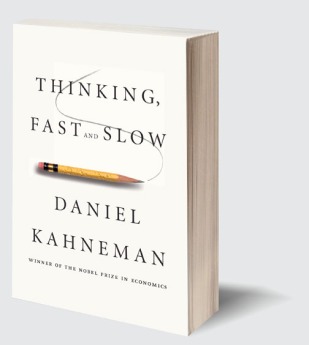Our incredible brains are doing so much all the time that we are unaware of, barely aware, or take for granted. These processes include constantly creating a 3D visual representation of the information entering our eyes, filtering sensory input to decide if it’s relevant (then bringing it into conscious awareness or not), regulating bodily processes like breathing, and so much more. It’s amazing!
We humans have a powerful drive to make sense of the world around us. Of course we do, it’s obvious why – to survive and thrive, we need to be able to understand and predict. Plus, we need to focus and concentrate on the task at hand and what is relevant. Much of this brain work is outside of conscious awareness: we just perceive the finished result. What we see, hear, feel, smell and notice around us has been filtered by our busy brains. It simply wouldn’t be productive not to do this.
For example, unless you have a particular reason to do so, you probably haven’t noticed the top of your head for a while. Don’t touch it, just bring your awareness there (if the last sentence hasn’t already made you do so). Now, you can probably feel the hair follicles (or air if there’s no hair there), temperature, perhaps the air moving. You couldn’t feel that before because your brain deemed it irrelevant. You have much more important things to do!
Let’s get practical!
Theories of selective attention and sensory processing are so interesting to me, I could write about this all day. However, you might not like to read it all day! (If you do, see the links at the end.) This blog is about how we can apply psychology in practical ways, to improve our lives and general wellbeing. So, let’s talk about the practical stuff 😉
Priming
According to Wikipedia, priming is “an implicit memory effect in which exposure to one stimulus influences the response to another stimulus.” What that means is that seeing, hearing (or otherwise sensing) one thing will affect how we process and respond to other things. Memories and meanings associated with the stimulus are activated, too. Our perception is affected, and accordingly so are our thoughts and behaviour.
The fascinating – and scary – thing about priming is not only are we usually not aware of it happening, we can be primed by stimuli that we weren’t ever consciously aware of. And even if we perceived it, we don’t realise we were primed. If someone is kind to us, we then notice more of the positive aspects of the world around us and less of the negative (kindness priming). If we see the word ‘nurse’, we will then be quicker to recognise the word ‘doctor’. The appetising appearance and scent of the food we are about to eat will enhance the taste when we take a bite.
So, here’s the practical idea for today: what we surround ourselves with, what we focus on, it really matters. Having a smile on your face makes you find things funnier (really! read about it here). Positive affirmations really do make us feel better.
Do you have a healthy diet?
We see what we expect to see, and our expectations come partly from what we have just seen. So, just like you might think carefully about what you do and don’t put into your body to make it healthy, the same applies to the mind. Surround yourself with positivity and you will feel more positive. Your brain will be primed to notice the good things in your life and ignore the bad. Ditto negativity.
Not everyone goes for affirmations, positive quotes, etc. so do what works for you. For example, do you start your day hearing depressing news and people arguing about politics on talk radio? Why not try a classical music station instead, or a positive audio book? When you sit at your desk (or wherever you most often sit), what is on the wall in front of you? Try putting up a picture or quote that makes you smile. If you can improve your physical comfort at any point, do it – feeling uncomfortable will affect your perception, thoughts and actions, even if you think you’re ignoring it (I simply cannot see the positives in life if I’ve got cold, wet feet for example).
I don’t mean that we should live in a bubble away from reality. However, we don’t need to focus on the negative aspects of the world all day, either. Pay attention to your sensory diet, and you will notice a difference in the health of your mind.
Like to know more?
If you’re really interested in the psychology I’ve alluded to here, you might like to read this article on Psychology Today or perhaps this amazing book – Thinking Fast and Slow by Daniel Kahneman.


